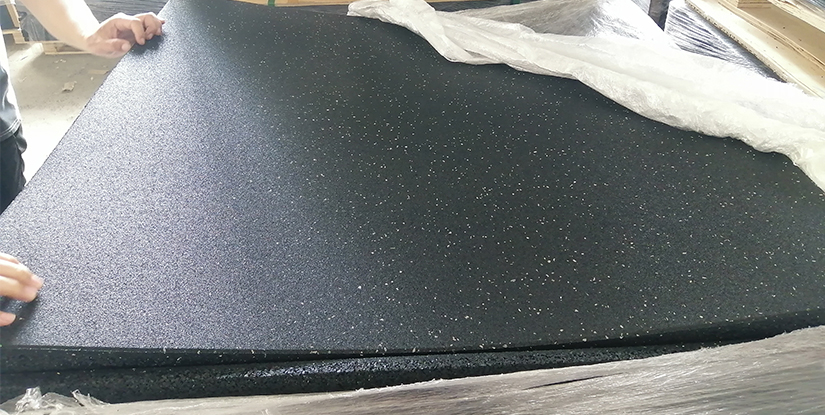Techno Floor Fitness Mat - Durable, Slip-Resistant Gym Flooring

Techno Floor Fitness Mat: Performance, Protection, Precision
The Techno Floor Fitness Mat is engineered to meet the demands of both commercial gyms and home workout spaces. Combining high-density cushioning with a textured, slip-resistant surface, this mat optimizes comfort, impact absorption, and stability across a wide range of exercises— from high-intensity interval training and plyometrics to yoga and mobility work. Its construction prioritizes durability, low maintenance, and safety, delivering consistent performance under frequent use.
Key Features
- High-density polyurethane or EVA core for superior shock absorption and joint protection.
- Micro-textured top layer to reduce slippage and improve grip for barefoot and shod activities.
- Closed-cell construction for water resistance and hygienic properties—prevents sweat absorption and microbial growth.
- Precision-cut edges and consistent thickness options (6mm, 10mm, 15mm) to match specific training needs.
- Eco-conscious manufacturing choices, including low-VOC compounds and recyclable materials where available.
Performance Benefits
Techno Floor mats are designed to provide measurable benefits for athletes and fitness enthusiasts. The high-density structure reduces peak force transmitted to joints during dynamic exercises, which helps lower injury risk and fatigue. Improved traction allows for safer weightlifting and lateral movements, while the resilient surface returns energy to the athlete for a more responsive feel.
Applications and Use Cases
- Commercial gyms and boutique studios: modular tiles can cover large floor areas and handle heavy foot traffic and equipment loads.
- Home gyms: roll-out or interlocking options provide protective flooring under cardio machines, weights, and training zones.
- Functional training areas: shock-absorbing properties are ideal for kettlebell swings, box jumps, and drop-landings.
- Yoga and recovery: softer profiles offer comfort for floor-based mobility, stretching, and rehabilitation work.
Installation and Maintenance
Installation is straightforward. Interlocking tiles align quickly with minimal tools, while roll-out mats require a flat surface and brief acclimation time. Routine maintenance involves sweeping to remove debris and periodic cleaning with a mild detergent solution. The closed-cell design minimizes moisture ingress; however, avoid prolonged exposure to direct sunlight and harsh chemicals that can accelerate wear.
Safety and Standards
Techno Floor mats comply with common industry safety benchmarks, including non-slip coefficients and flame-retardant testing where applicable. For commercial applications, verify that specific product variants meet local building codes and gym insurance requirements. Manufacturers typically provide technical data sheets detailing load capacities, indentation resistance, and VOC emissions.
Buying Guide: Choosing the Right Techno Floor Mat
- Determine thickness based on activity: 6mm for general fitness, 10mm for multi-use spaces, 15mm+ for high-impact zones.
- Evaluate installation type: interlocking tiles for modular coverage, rolls for continuous surfaces, or custom-cut pieces for specialized spaces.
- Check density and durometer ratings to balance cushioning and stability—higher density for heavy equipment areas.
- Consider surface texture and color options for aesthetics and visual zoning of training areas.
- Review warranty, fire rating, and environmental certifications such as low-VOC or recyclable content.
Cost and Value
While initial investment varies by thickness and surface area, Techno Floor mats offer long-term value through reduced equipment damage, lower maintenance costs, and enhanced user safety. For facilities with high usage, choosing a higher-specification mat reduces replacement frequency and downtime.
FAQs
- Q: What thickness is best for weightlifting? A: 10–15mm typically balances protection and stability for weightlifting areas.
- Q: Are the mats waterproof? A: Closed-cell versions resist moisture and are suitable for sweaty environments.
- Q: Can I use them under treadmills? A: Yes—choose higher density to support concentrated machine loads.
- Q: How do I clean the mat? A: Sweep regularly and use a mild detergent with water for spot or periodic cleaning.
- Q: Do they emit odors? A: Low-VOC formulations minimize odors; allow ventilation after installation for best results.
- Q: Are tiles easy to replace? A: Interlocking tiles are simple to remove and replace individually if damaged.
- Q: Can they be used outdoors? A: Some variants tolerate limited outdoor use but prolonged UV exposure can degrade materials.
- Q: Is installation DIY-friendly? A: Yes—most tiles and rolls can be installed without specialized tools by experienced installers.
- Q: What warranty is typical? A: Warranties vary; commercial grades often include multi-year coverage against manufacturing defects.

